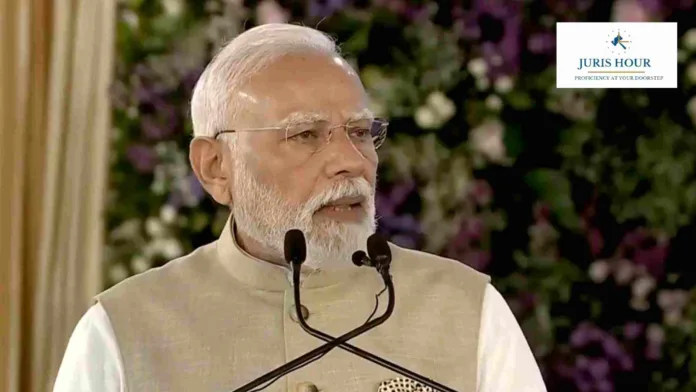Prime Minister Narendra Modi reaffirmed his government’s commitment to ushering in sweeping “next-generation reforms” in the Goods and Services Tax (GST), saying the changes will significantly ease the burden on the common man while strengthening the economy.
In a post on social media platform X, the Prime Minister recalled that he had spoken about such reforms during his Independence Day address. He said the Union Government had prepared a detailed proposal focusing on broad-based GST rate rationalisation and process reforms, with the twin goals of making life easier for citizens and boosting India’s economic growth.
“Glad to state that the GST Council, comprising the Union and the States, has collectively agreed to the proposals submitted by the Union Government on GST rate cuts & reforms, which will benefit the common man, farmers, MSMEs, middle-class, women and youth,” Modi wrote.
The Prime Minister underlined that these wide-ranging reforms would not only reduce the cost of essential goods and services but also improve the ease of doing business, particularly for small traders and enterprises.
Focus on Inclusivity and Growth
The GST Council, chaired by Finance Minister Nirmala Sitharaman, approved a range of measures including lower tax slabs for essential food products, healthcare goods, and items of mass consumption. On the other hand, higher tax rates were imposed on luxury and “sin goods” such as pan masala, aerated beverages, and luxury vehicles, ensuring a more equitable tax structure.
Experts say the reforms are aimed at balancing consumer relief with revenue needs. MSMEs and start-ups are also expected to gain from simplified compliance procedures, improved input tax credit mechanisms, and faster refund processes.
A Step Towards Ease of Living
With these reforms, the government has sought to strike a balance between affordability for the public and sustainable revenue for the exchequer. Analysts believe that the changes will help push consumption, support small businesses, and pave the way for long-term economic growth.
The announcement marks a significant step in India’s indirect tax regime since the GST was introduced in 2017, replacing a complex web of state and central levies with a unified tax structure.
Read More: Key Highlights Of 56th GST Council Meet

